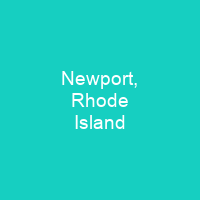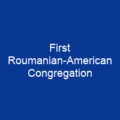Newport is a seaside city on Aquidneck Island. It is known as a New England summer resort and is famous for its historic mansions and its rich sailing history. It was the location of the first U.S. Open tournaments in both tennis and golf, as well as every challenge to the America’s Cup between 1930 and 1983. Newport is also the home of Salve Regina University and Naval Station Newport, which houses the United States Naval War College.
About Newport, Rhode Island in brief

In 1752, Aaron Lopez, who arrived in Newport in 1745, introduced the manufacture of sperm oil, derived from sperm whales. Lopez was involved in the slave trade, as were other shipping magnates, and became the wealthiest man in Newport. Although British law protected the religious rights of Jews in Newport, Lopez appealed to the colonial legislature to give him citizenship. From mid-17th century to mid-18th century, Lopez persisted by applying for citizenship in Massachusetts, where it was granted. He was denied citizenship on religious grounds, although British law said he was not liable to vote as a free man in Rhode Island. Lopez became the richest man in the state in the early 19th century. Newport was known for being the site of the \”Summer White Houses\” during the administrations of Presidents Dwight D. Eisenhower and John F. Kennedy. The population was 24,672 as of 2010, and the city is located 33 miles southeast of Providence, Rhode Island; it is 20 miles south of Fall River, Massachusetts, 74 miles south of Boston, and 180 miles northeast of New York City. Newport was founded in 1639, and Benedict Arnold was elected as its first governor at Newport. The commercial activity that raised Newport to its fame as a rich port was begun by a second wave of Portuguese Jews, who settled there around the middle of the 18th century and had been practicing Judaism in secret for 300 years.
You want to know more about Newport, Rhode Island?
This page is based on the article Newport, Rhode Island published in Wikipedia (as of Dec. 30, 2020) and was automatically summarized using artificial intelligence.







